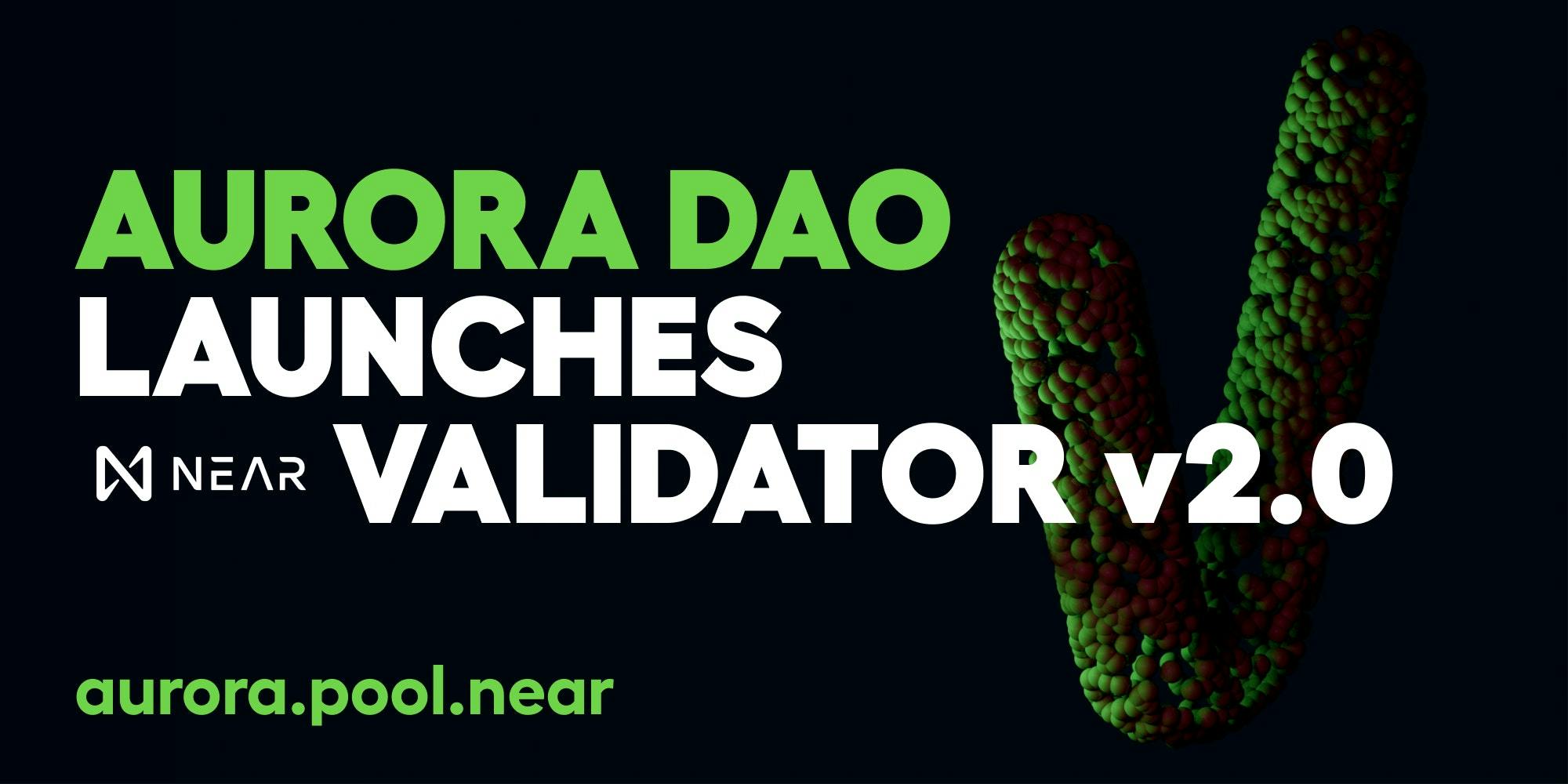Aurora is the first project to use NEAR's Proof-of-Stake 2.0 to unlock staking rewards
Aurora becomes the first project that supports NEAR's PoS 2.0

This article does not constitute any investment advice, and is not responsible for any investment results.
TLDR:
- NEAR launches a new type of Proof-of-Stake mechanism: stake farming - which better aligns the interest of professional validators and ecosystem projects;
- In addition to the NEAR base token rewards, stake farming allows delegators/users to receive rewards in ecosystem project’s fungible token;
- Stake farming generates much higher APY, incentivizes more network usage, and reduced perceived inflation of the base token;
- Aurora, an ETH layer 2 on NEAR, becomes the first project that supports this new type of PoS; Aurora tokens just got listed by Huobi;
- All of these are possible because NEAR is the only PoS blockchain that allows smart contract based delegation, instead of hard coding delegation on the protocol level; this allows staking on NEAR to be better integrated with DeFi.
NEAR will for the first time offer Proof-of-Stake (PoS) delegators the chance to earn rewards in more than one token. Launching with Aurora, the Ethereum scaling solution that allows projects built on Ethereum to utilize the cutting-edge technology of the NEAR Protocol, staking farm contracts will allow validators to distribute more than one token to delegators that help secure the NEAR network.
This gives NEAR validators the unique opportunity to attract more capital while ensuring new and growing projects can take part in network security as well as gain exposure to delegators.
NEAR is the first proof-of-stake blockchain to support staking farm contracts. This will provide opportunities for the NEAR ecosystem to further decentralize by allowing validators to take a more active role in supporting new and emerging projects.
“The new validator model allows for better alignment of the incentives in the NEAR ecosystem. We’re looking forward to seeing the collaborations between projects and professional validators and delivering much more value to the users,” says Alex Shevchenko, the CEO of Aurora Labs.
What is Proof-of-Stake
Proof-of-stake is a type of consensus mechanism used by blockchain networks to help keep them secure. It requires users to stake the network’s base tokens to become a validator. Validators play the same role as miners in proof-of-work networks like Bitcoin: they help order transactions and create new blocks.
Proof-of-stake networks like NEAR, however, come with a number of improvements over proof-of-work. They use a lot less electricity to power the network - NEAR is certified carbon neutral - and don’t require expensive, specialized hardware to be a validator.
As a result, proof-of-stake networks are likely to be more decentralized than their proof-of-work counterparts, as more people can meet the requirements of being a validator.
Staking and validating on NEAR
For validators to take part in securing NEAR, they must stake a certain amount of $NEAR tokens as collateral. Once staked, these tokens are then used to ensure the validator acts honestly. If the validator tries to cheat or change the blockchain record, the network burns part of the stake as punishment.
There is a minimum threshold for how much $NEAR must be staked, which validators can invite delegators (token holders who want to secure the network without running validation hardware) to contribute to. Delegation is the opportunity for all token holders to stake in partnership with a validator, leasing a small portion of their validating node. Delegators can lock their funds into a staking pool and receive rewards.
Challenges with existing PoS Mechanism
In the current system, just like any other proof-of-stake network, a user delegates the base token—in this case, $NEAR—to the validator and receives the same token back as a reward from staking, which is currently around 10% of annualized return.
The current PoS mechanism creates a misalignment of interests from the professional validators, who specialize in server management for staking, and ecosystem projects, who build and grow the NEAR ecosystem. Previously, ecosystem projects on PoS networks couldn’t receive any benefits from validator rewards. With this new update, they now can.
A New Option for Validators and Delegators
In NEAR’s new stake farming system, ecosystem projects can partner with validators to incorporate the project tokens’ farming into their rewards structure. This allows validators to split the NEAR staking rewards with the projects.
At the same time, stake farming also creates a more compelling proposition to delegators who now get both NEAR and project tokens, with a much higher APY in most cases. This newly found synergy will likely accelerate NEAR’s ecosystem growth with further network decentralization.
Aurora is the first project to adopt this new vision for validators on NEAR. Going forward, other projects will also have the opportunity to take part in this radical new vision for securing NEAR and supporting the ecosystem. In Aurora’s case, its DAO approved the new staking farm. The launch of the new Aurora validator is a fulfillment of the Aurora DAO promise to distribute 3% of AURORA tokens to the NEAR community.
While this is the first farm launched by Aurora, there is flexibility to open more in the future.
This upgrade to NEAR protocol is one of several planned this year that will help the network further decentralize, become more inclusive, and help accelerate its mission to onboard the world into web3.
How to take part in stake farming
Step 1: Head to https://wallet.near.org/staking/aurora.pool.near
Step 2: Select 'Stake with validator'
Staking rewards will be paid in $AURORA. The fee structure means, 100% of NEAR tokens will be used to cover Aurora network fees and bridge fees.
